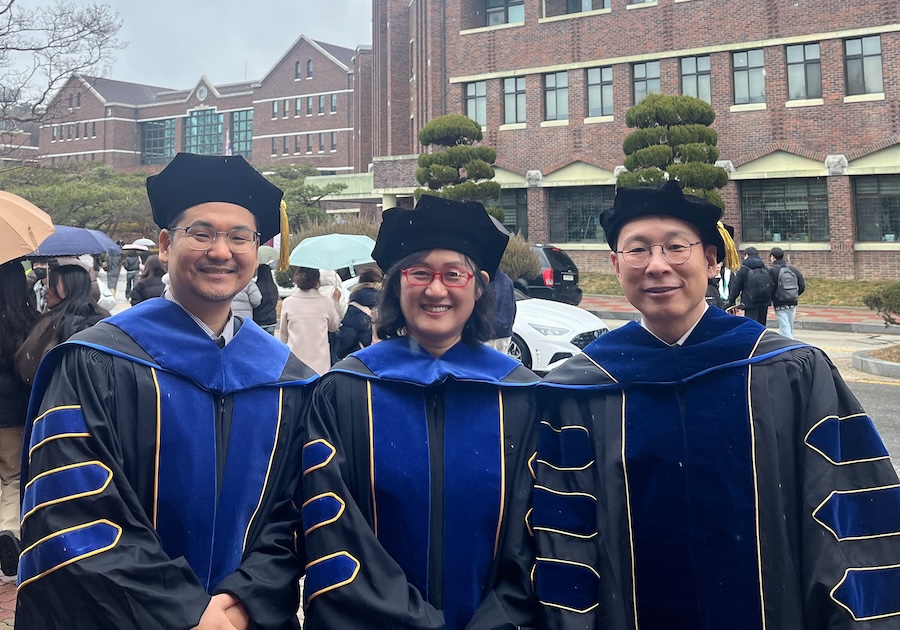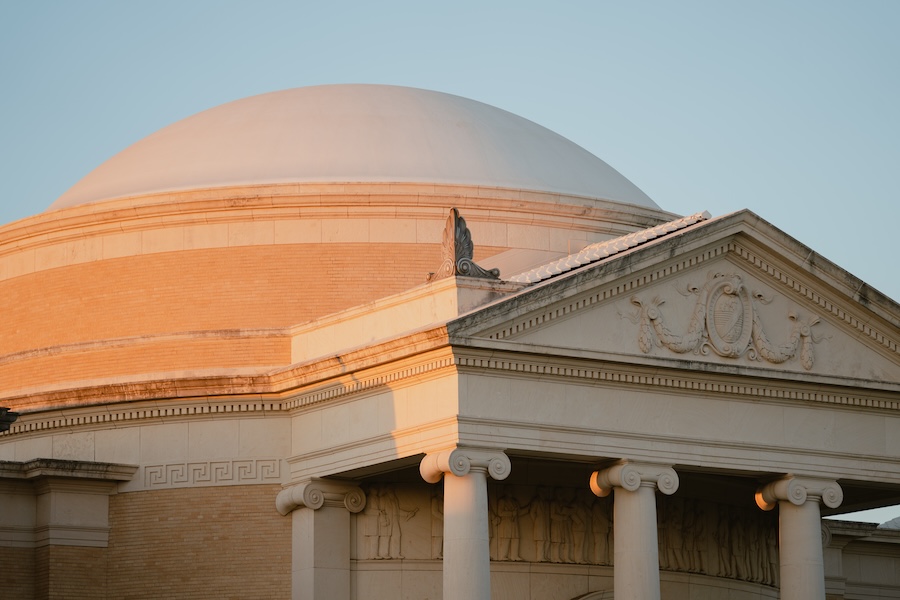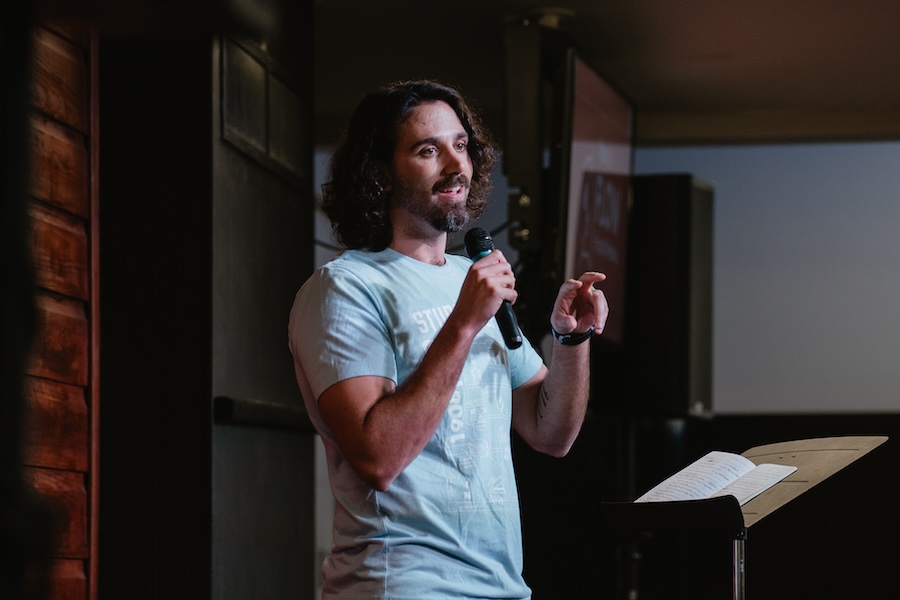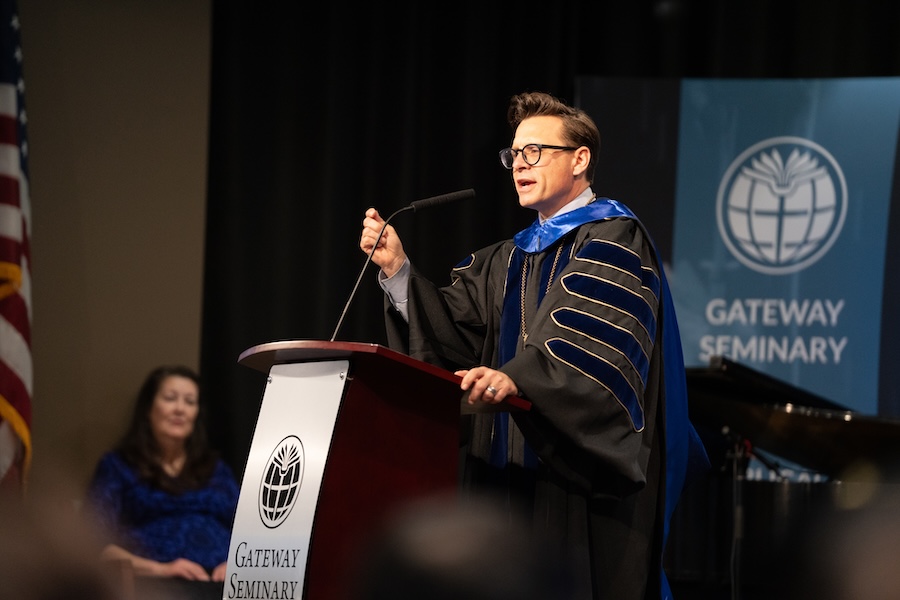From Seminary Hill to the Public Square: America’s growing hostility to the Gospel requires pastoral cultural engagement, says Jim Denison
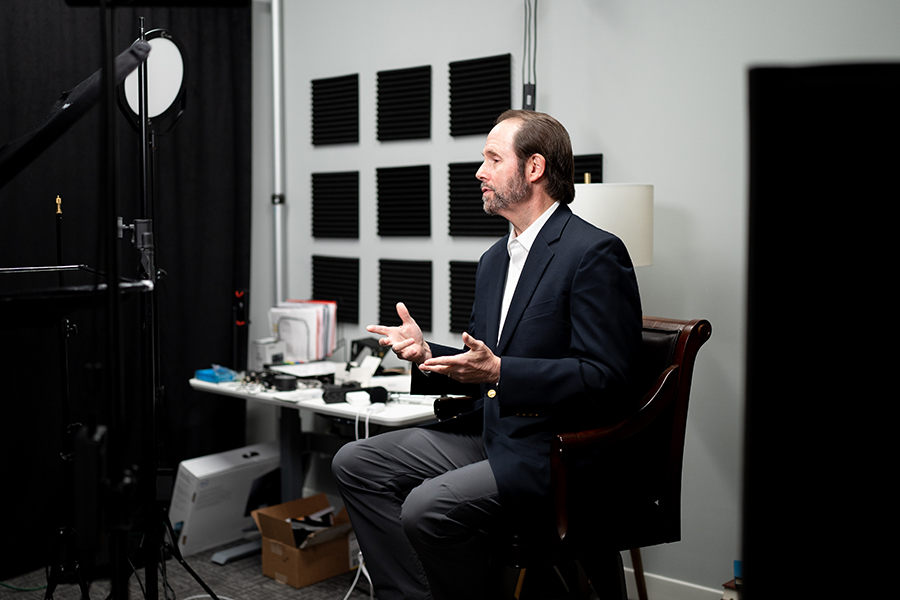
Editor’s note: this article appears in the Fall 2021 issue of Southwestern News.
Jim Denison says a counselor may say his cultural apologetics ministry, the Denison Forum, is his way of still trying to reach his father and those like him.
Lester I. Denison was so active in church that many friends believed he would end up in vocational ministry before he went off to war in the South Pacific. The elder Denison was one of only 17 men out of 300 in his unit to survive the horrors of World War II. Coupled with significant post-war health challenges that would ultimately result in his death when Denison was in college, the senior Denison never again went back to church.
“I think it was a lot of things for dad that caused him like so many people I have known over the years just not ever to be able to make those dots connect again,” Denison told Southwestern News in an interview at his office in Dallas. Although he never again went to church, Denison’s father was not hostile to the faith, nor did he ever deny the Lord.
Indeed, Denison would hear the Gospel, come to faith in Christ, and experience the call to the ministry because his father put himself and his brother on a Houston-area Baptist church bus. And yet, even as a church attender as a youth, “I still had my dad’s questions” about God and faith.
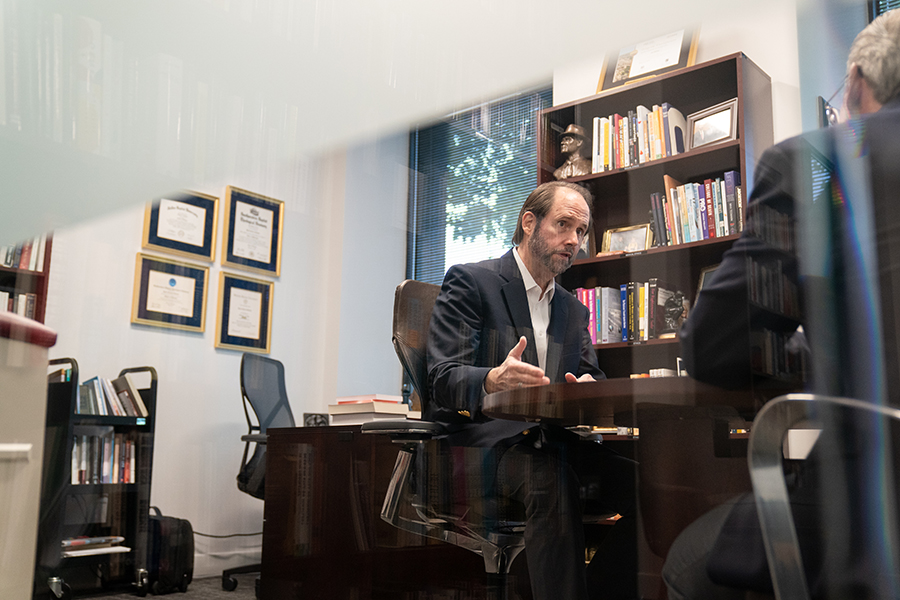
“C. S. Lewis’s Mere Christianity was life-changing for me. It was the first time I’d ever seen anyone deal with the faith intellectually,” Denison says of the seminal work that he read a year or so after his conversion at age 15, noting the tattered copy of the book remains in his library. “If we have a fire, that’s the first book I’m going to save.”
Now, many years later following his time as a faculty member at Southwestern Seminary and several pastorates, the “same trajectory” resulted in the creation of Denison Forum in 2009 to “help people respond biblically and redemptively to the issues of the day” by providing resources that “exegete the culture.”
“Our belief is that changed people change the world,” he says.
Denison Forum began modestly with just Denison, his longtime ministry associate, Jeff Byrd, and three employees. Denison began working as theologian-in-residence for the Baptist General Convention of Texas. Starting with 7,000 subscribers, what is now known as The Daily Article boasts nearly 360,000 subscribers, with a total audience of 2.5 million each month. The email newsletter—“the front door” of the ministry—that is also available via podcast “curates the news” by helping Christians understand why it’s news and how to respond biblically.
But Denison Forum is one part of the larger Denison Ministries, which includes devotional, parenting, and pastoral resources, as well as his wife’s Bible-teaching ministry, Foundation’s with Janet Denison. Employing about 45 full-time staff members, the ministry’s total audience is more than 5.5 million and is expected to top six million by the end of 2021, he says.
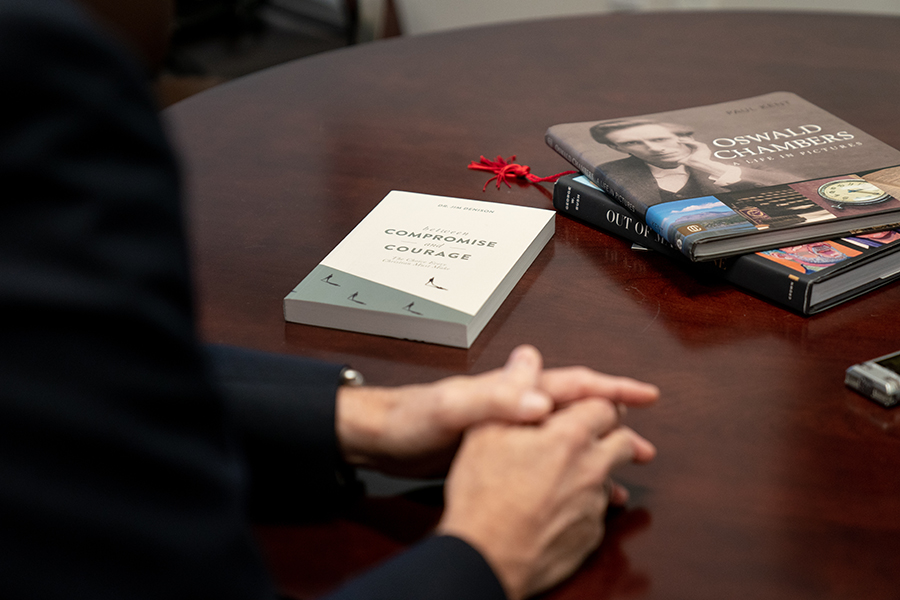
His pastoral writing ministry began during the Christmas break of 1999 when he was pastoring Park Cities Baptist Church in Dallas and offered a weekly email devotional for interested members and found 700 interested readers. The newsletter took a cultural turn several years later when Gene Robinson was ordained as the first openly homosexual bishop in the Episcopal Church and Denison was asked how Christians should understand the issue.
The author of several books in cultural apologetics, Denison credits his Master of Divinity (’83) and Doctor of Philosophy (’89) education at Southwestern Baptist Theological Seminary as pivotal to his ministry.
“I experienced what the blend of excellent academic passion and practical ministry outcomes really could look like,” he says, pointing, in particular, to his mentor, John Newport, whose scholarly accomplishments and weighty duties as the seminary’s provost did not keep him from accepting an invitation to preach a week of revival services for Denison’s small congregation in Mansfield, Texas, during his doctoral studies.
“Out of that revival started a prayer movement that continued all through my pastorate there” and for many years beyond, Denison says. “That combination of academic brilliance and practical passion was, I think, the genius of Southwestern.”
Denison finds in Southwestern Seminary today the same genius.
“I am extremely grateful for Dr. Greenway’s leadership and for his passion as I understand it and for the direction that the seminary is taking” that is consistent with what he saw as a student, he says. As an example, Denison lauded Greenway’s naming of Ted Cabal (’90, ’95) to the Southwestern faculty in 2020 as a “coup for the seminary.” A former student of his, Denison says Cabal is “absolutely brilliant” who “not only loves the Lord with all his mind, but also with all his heart and [is] somebody who wants his students to be actively engaged in the Kingdom.”
Denison adds, “And so where we’re headed now, in so many ways, feels to me very consistent with the Southwestern I experienced.”
He has used his Southwestern education throughout his ministry, Denison says, to help Christians engage the culture. Rather than as one kind of ministry among others, pastors should see cultural engagement as “how we equip our members to live their lives in a way that follows Jesus.”
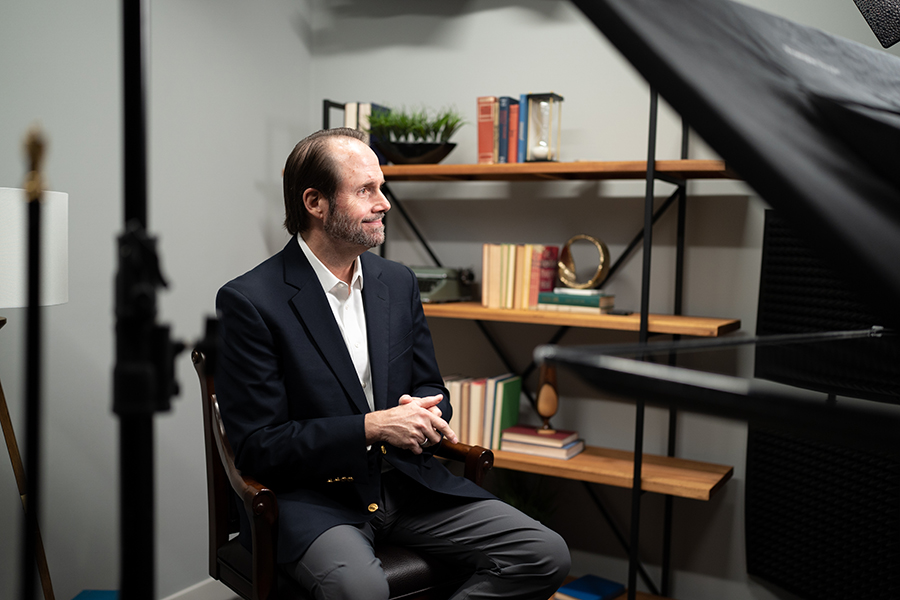
Denison believes the abortion issue for American Christians is “definitional across the board. A country, a nation, a culture that decides, as is being said these days in light of the Texas Heartbeat bill, ‘My body, my choice,’ is going to say that not just about abortion. It’s going to say that about euthanasia, it’s going to say that about sexual orientation [and] gender identity. It’s going to say that across the spectrum.”
Christians in America today “more than ever before” are “facing a level of rising cultural animosity, cultural opposition to the Gospel, for which Christians need to be equipped and prepared on a more intentional level than ever before,” he says. It’s the duty of pastors to “make cultural engagement central” to their ministries to prepare their members for what they face outside the church.
If pastors “thought of ourselves in a missions context and understood that on Sunday, I’m speaking English and the rest of the week my members are speaking Mandarin, and I can equip them as they speak Mandarin to do so in the context of the faith that we’re learning in English, I think that’s an effective metaphor for where we find ourselves,” he says.
Pastors should avoid the ditches of partisan politics on one side and unwillingness to confront cultural issues on the other side as they lead their members in cultural engagement, Denison believes.
To help pastors and other American Christians understand the challenges of the current cultural moment, Denison has written a new book, The Coming Tsunami: Why Christians Are Labeled Intolerant, Irrelevant, Oppressive, and Dangerous—and How We Can Turn the Tide, to be released in January.
“I often say that God redeems all that He allows,” he says. “And we can redeem this tsunami, we can turn this tide and have this be a catalyst for a fifth Great Awakening, I believe, and that’s ultimately the purpose of the book.”
Denison seeks to bless his two sons in whatever God is calling them to do—something he never received from his father.
“One of the things I’ve learned over the years on my good days is that I have a heavenly Father’s blessing, even if I didn’t really have my earthly father’s blessing.”
James A. Smith senior is executive editor of Southwestern News.
